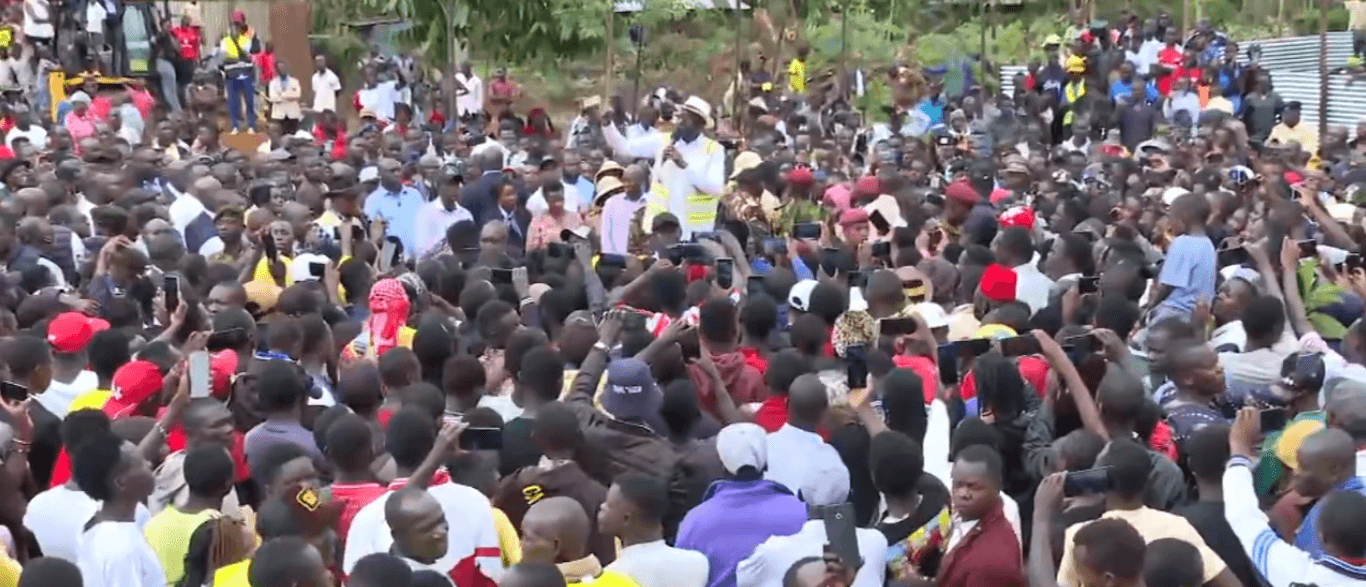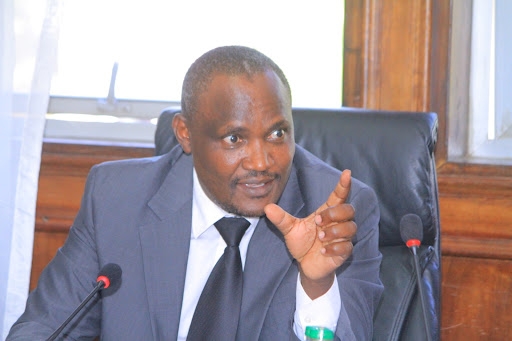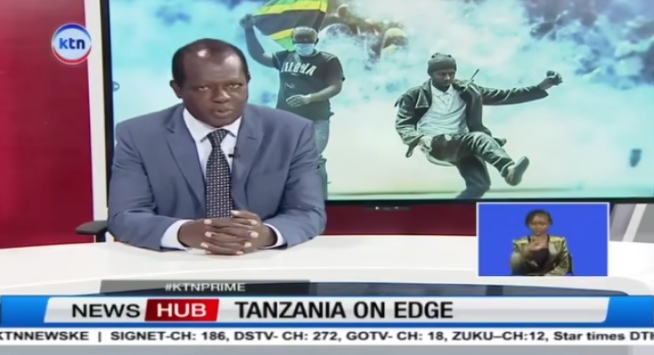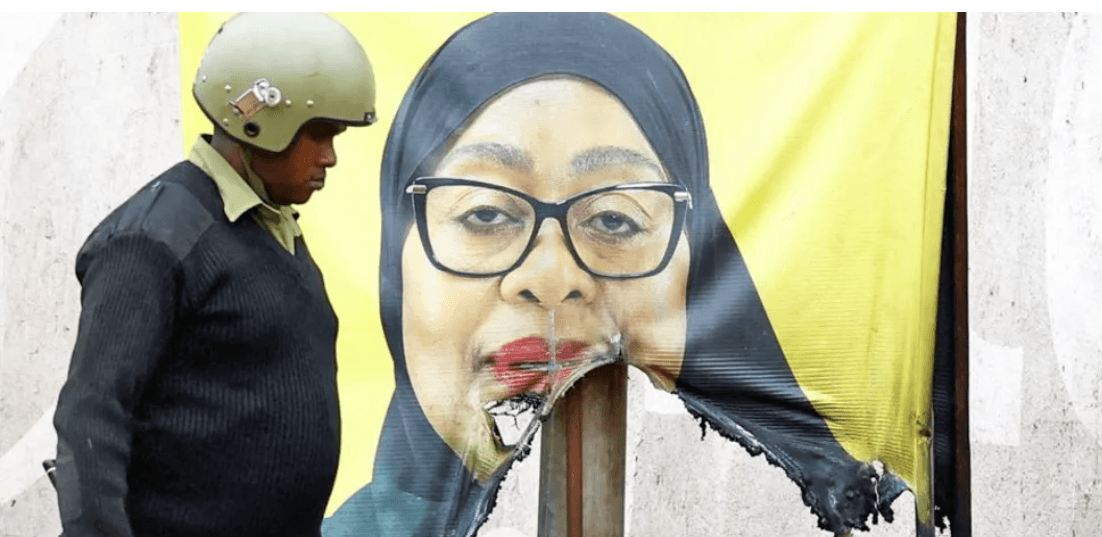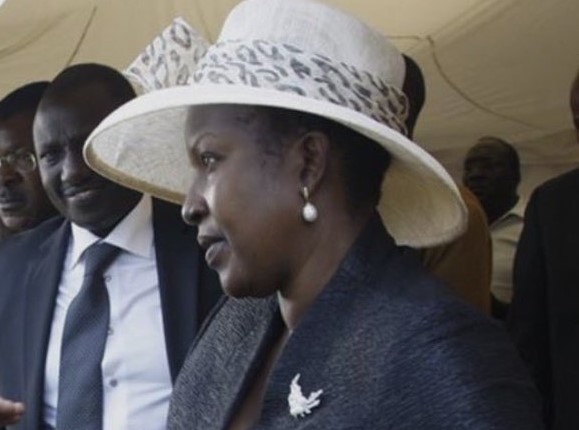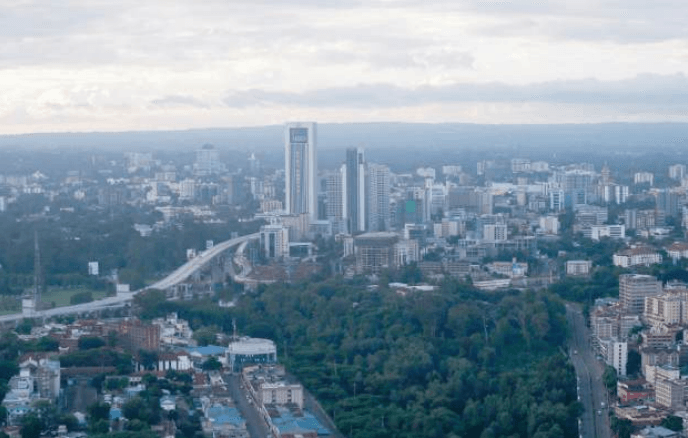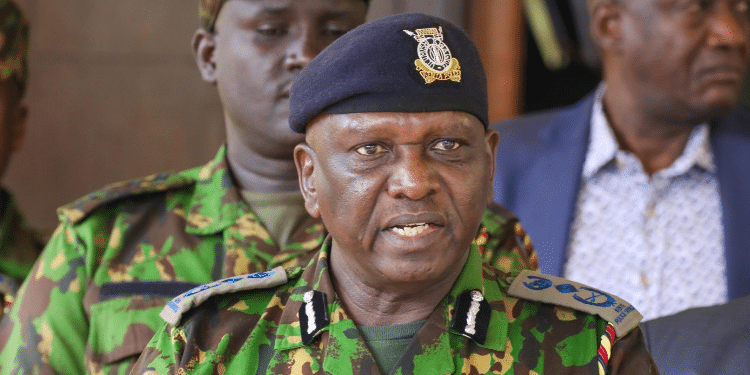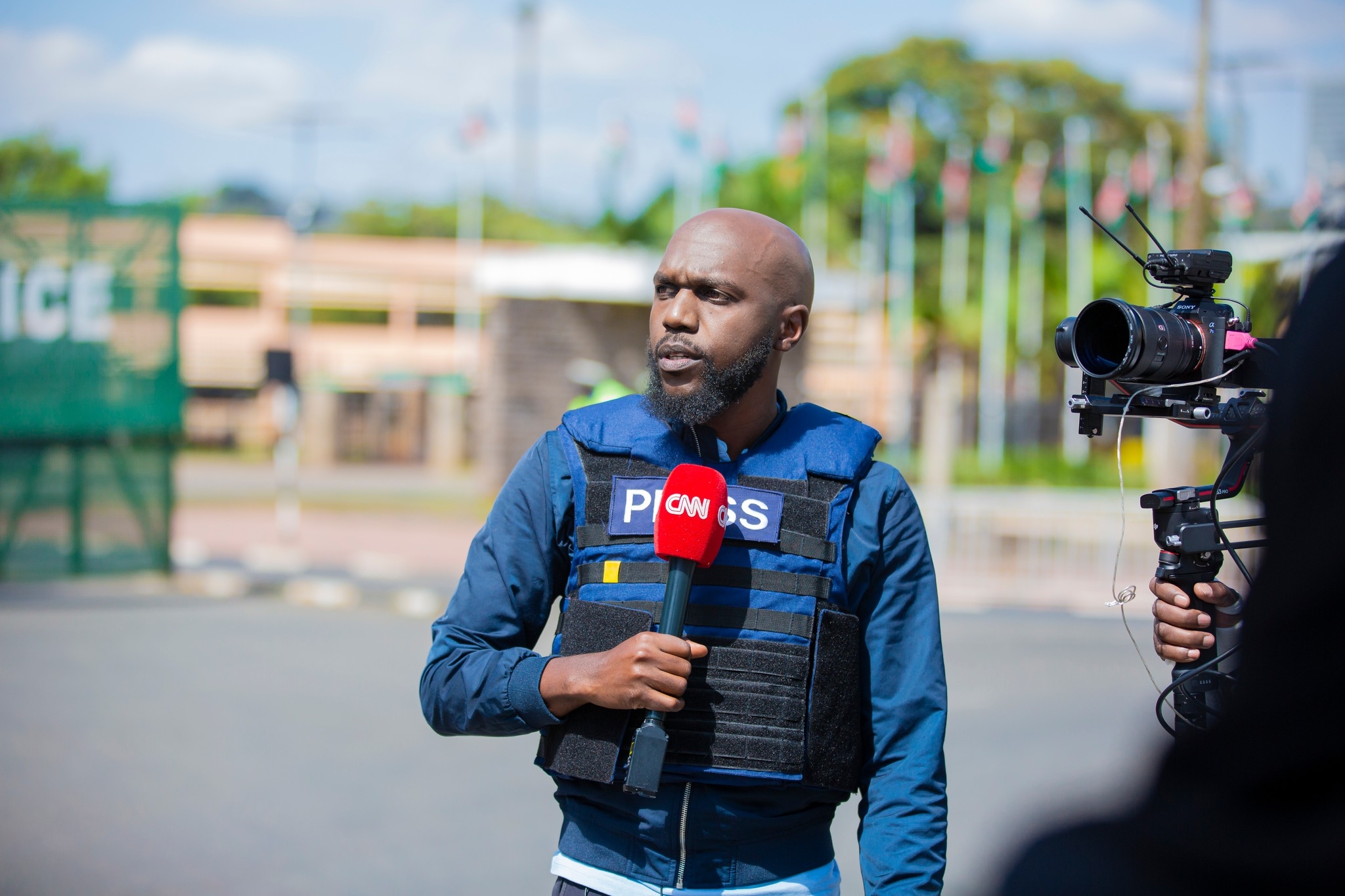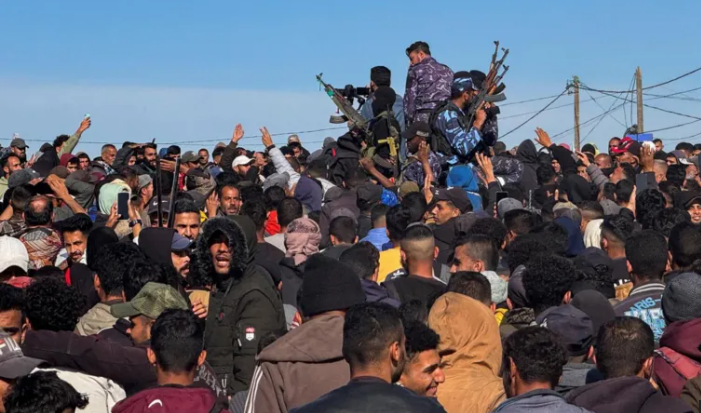
Thousands of displaced Palestinians attempting to reach northern Gaza have gathered at an Israeli military barrier which is blocking their progress.
Images showed massive crowds waiting to pass the Netzarim Corridor, a road which separates north and south Gaza and is controlled by Israeli troops.
Israel was scheduled to withdraw its forces from the area this weekend but they remained after the government accused Hamas of breaching the ceasefire agreement.
Israel said it would continue to block the route to northern Gaza because Arbel Yehud, a female civilian hostage, was not released on Saturday. Hamas responded by providing proof she is alive and said she would be released next weekend.
On Saturday, Hamas freed four Israeli female soldiers it had held hostage since 7 October 2023, in return for 200 Palestinian prisoners. Ms Yehud, a non-military hostage, was scheduled to be freed first.
Mediators in Egypt and Doha are holding meetings over the smooth and safe return of displaced Palestinians to their homes in the north but a senior Palestinian official told the BBC that the process remains stalled.
There were some chaotic scenes on Saturday evening as Palestinians who had expected to be able to walk north following the completion of the hostage release found the road was still blocked by Israeli tanks.
As crowds gathered along al-Rashid road in central Gaza to return home, gunshots were reportedly fired.
In one video posted online, which BBC Verify has confirmed was filmed on that road, people could be seen panicking and four gunshots could be heard.
In a separate incident, Reuters news agency, citing the Hamas-run health ministry, and Palestinian media reported one person was killed and others injured.
The Israel Defense Forces (IDF) said troops in central Gaza had fired shots after "several gatherings of dozens of suspects were identified who posed a threat to the forces".
A statement continued: "Contrary to reports emerging in recent hours, all of the shooting in the area was carried out for the purpose of distancing and not aimed at harm. We emphasise that as of this stage, no injuries to the suspects are known to have occurred as a result of the shooting."
Earlier on Saturday, Muhammad Emad Al-Din was one of the thousands waiting to return home to northern Gaza.
"I know my house might be destroyed, but I'll pitch a tent over its remains. I just want to go back," he told the BBC over the phone.
"I need to reclaim my work. I am a barber in Gaza and I've been trying to figure out how to repair the damage to my salon and restart my business. I've become indebted to so many people and I can't afford to buy the simplest things for my children," he added.
"All I wish for is for this dispute between Hamas and Israel to end and for us to be allowed to move back to our homes in the north. We haven't seen our loved ones for more than 15 months."
Under the terms of the ceasefire agreement, Palestinians had been scheduled to be allowed to travel north of the Netzarim Corridor, a seven kilometre (4.3 miles) strip of land controlled by Israel that cuts off north Gaza from the rest of the territory.
Lubna Nassar, carrying her two daughters and son on a donkey cart, was hoping to return to her home and reunite with her husband, Sultan, whom she has not seen in 11 months.
Speaking on Saturday afternoon, she said: "I will stay here, as close as possible to the Israeli checkpoint. For months, my daughters have been waiting for the moment to meet their father. I want to be among the first to return to Gaza."
Qatari and Egyptian mediators who have facilitated talks between Israel and Hamas have made progress in their efforts to allow hundreds of thousands of Palestinians to return to the north.
Israel had asked the mediators for proof from Hamas that Ms Yehud is alive and it appeared that had been given to the Egyptians by Saturday evening, the BBC understands.
Meanwhile, many Gazans were watching anxiously for any breakthrough that could allow them to return.
For many, the hope of returning outweighs the reality of what awaits them: ruins and destruction.
Yet the dream of reclaiming their lives, rebuilding their homes and reuniting with their families are keeping their spirits alive.


